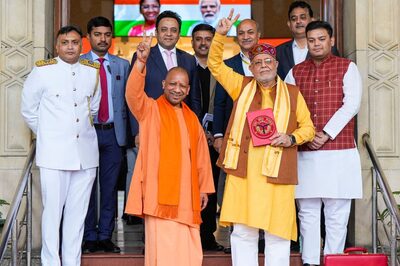
views
New Delhi: In outlining the Nyuntam Aay Yojana (Nyay), Congress chief Rahul Gandhi has perhaps promised the world’s biggest minimum income guarantee (MIG) scheme.
As per the announcement, the scheme will guarantee an income of Rs 6,000 per month to the poorest of families, benefitting about 25 crore people and costing the exchequer Rs 3.6 lakh crore.
For an understanding of exactly what such an expenditure would mean, it pays to draw context from comparable figures. For example, India’s current GDP stands at Rs 178 lakh crore. So, if implemented, the MIG scheme will cost the government about 2% of the GDP.
The other point of comparison is the country’s defence budget, which currently stands at Rs 4.31 lakh crore. So, the cost of MIG is about 85% of the budgetary allocation towards defence.
Poverty and unemployment, including under-employment, are serious issues in India. According to a report by Brookings, around 7.3 crore people in India are currently living in extreme poverty. And an equally serious issue concerns the levels of inequality in India.
According to a report by Oxfam which was presented at the 2019 World Economic Forum in Davos, the Gini wealth coefficient in India has gone up from 81.2% in 2008 to 85.4% in 2018.
The Gini coefficient measures inequality where zero represents perfect equality.
Suffice to say that considering India’s position as regards poverty and inequality, a minimum income scheme would go a long way in bridging historical wrongs. And the implementation of such a scheme is not utterly impossible.
In January 2019, when the Congress party publicly stated its intention to implement such a scheme, news reports confirmed that British economist Angus Deaton, a 2015 Nobel Prize winner, French economist Thomas Piketty and Abhijit Banerjee, a Ford Foundation professor of economics at the Massachusetts Institute of Technology (MIT), are assisting the Congress in developing the scheme.
In his much-acclaimed book Capital in the Twenty-First Century, Piketty dealt with issues concerning wealth and inequality. He is also one of the biggest supporters of a global wealth tax. Banerjee and Piketty are also associated with the World Inequality Database (WID), an open source database on the historical evolution of income and wealth distribution.



















Comments
0 comment